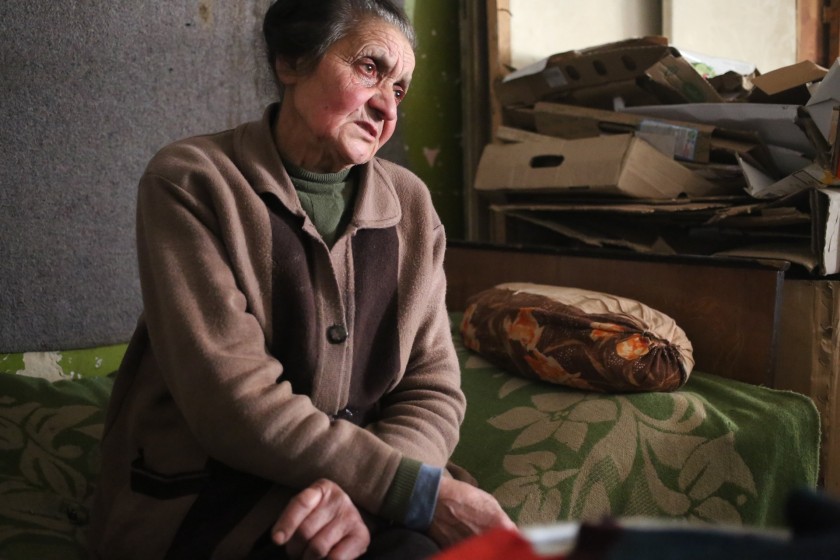
26 Years Later: Valya Still Haunted by the Memories of the Native Artsakh Village Left Behind
Marine Martirosyan
Cold air permeates the long dormitory corridor. There are many locked doors.
We walk down the dimly lit hallway, looking for one of the dorm’s residents. We’ve given up hope of talking to someone. There’s one door left. We knock. A voice from inside asks, “Who’s there?”
- Can we come in?
- Sure, please do.
The room we enter is hard to fathom at first glance. Smoke has enveloped the room like a blanket of fog. A smartly-dressed woman rises from the bed near the stove. She invites us in.
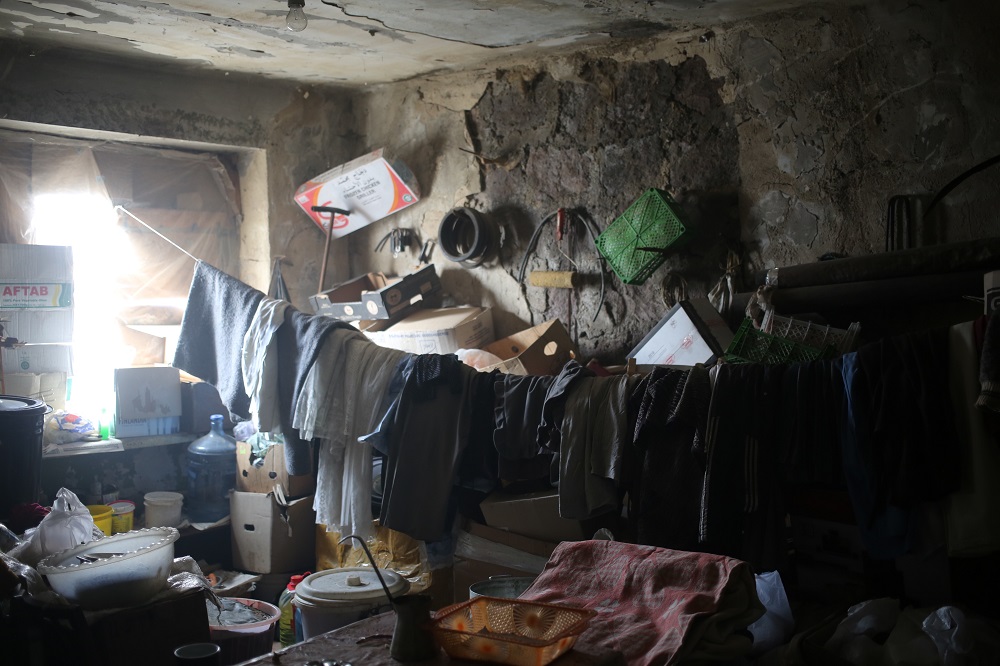
The room resembles a storehouse more than a place to live. Cardboard boxes are stacked behind the stove. Laundry hangs from a clothesline. The diversity of items in the room is immense.
There are two smaller rooms opposite the one we’re standing in. Eight people live in those rooms – the woman, her son and his family, and a younger son.
They’ve been forced to cook and warm up in the storage room for the past three months since the chimney hasn’t been working in the other two rooms.
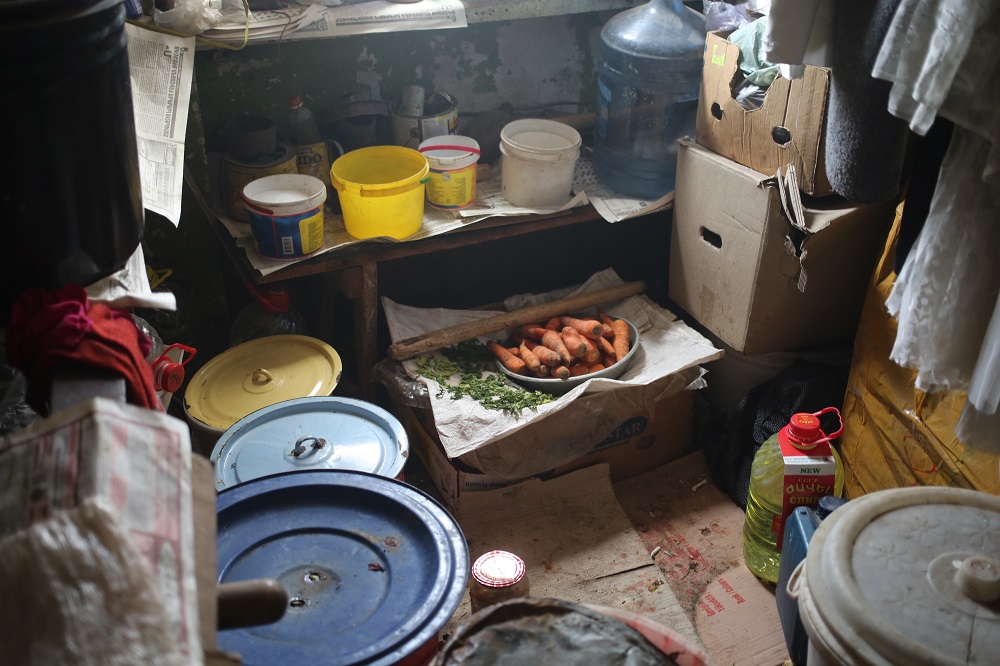
Valya Sargsyan, 77, is a native of Talish, a village in northeastern Artsakh. Her words are punctuated with sobs of pain.
“We fled Talish on June 14, 1992. We trekked through mountains and valleys to reach Stepanakert. A few weeks later, we reached Hrazdan. My sister and brother were living in Abovyan at the time,” says Valya, who’s been living in the dormitory of the former technical school in Hrazdan.
The woman muffles her cries, placing a hand over her mouth.
“If a person’s heart is wounded, that’s how they’ll leave this world,” Valya says.
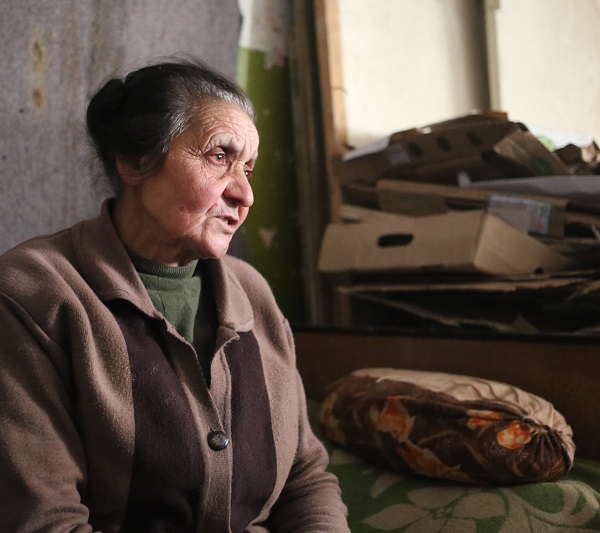 Her eldest son was killed in Talish. There was no time for a proper funeral. The war had arrived at their front door. They had to leave. A villager who remained buried her son. The memory of what happened still haunts Valya. Every year, in May, she travels to Talish to visit her son’s grave.
Her eldest son was killed in Talish. There was no time for a proper funeral. The war had arrived at their front door. They had to leave. A villager who remained buried her son. The memory of what happened still haunts Valya. Every year, in May, she travels to Talish to visit her son’s grave.
Two of Valya’s remaining for sons are in Russia. “My youngest is a bachelor. The other has four kids. We all live in the other rooms,” she tells us.
Twenty- six years on, Valya says she remembers the day she left her native village as if she never left – her house, the meal she was eating, even the weather.
“We worked the land. We purchased our house. We traded. It was all good. It was a rich country. Sure, I remember it all; the house, the food. How can I forget?” says Valya.
She’s boiling water on the stove. If it ever heats up, it’s enough to bathe one person. But there’s not enough wood. She’s burning cardboard.
“Had you arrived a few minutes earlier, you wouldn’t have seen me. I had just arrived when you knocked,” says Valya.
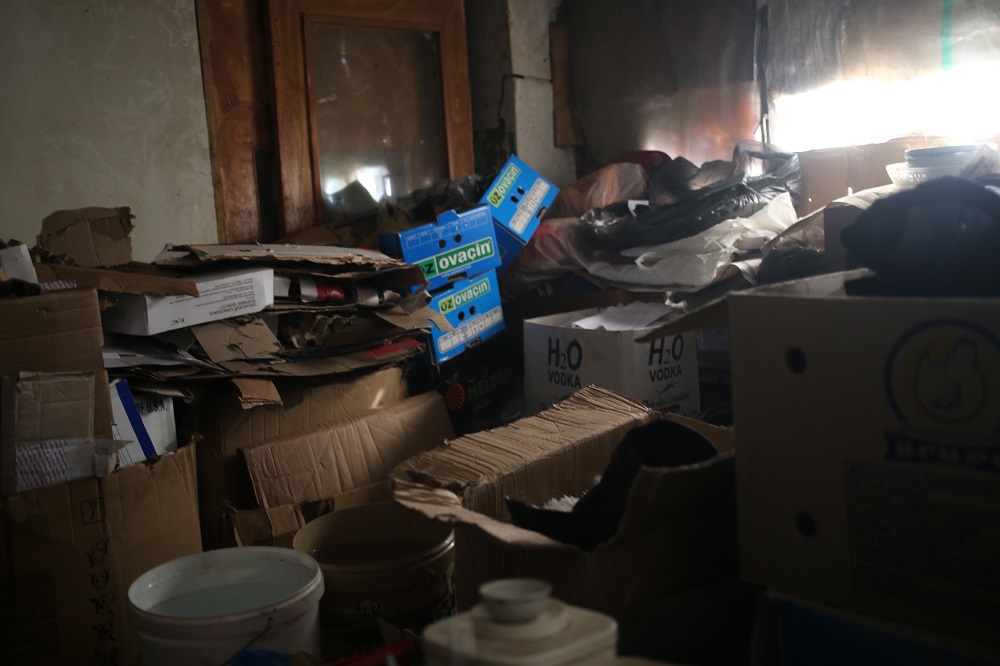
The cardboard is collected from the street; the boxes flattened and tied down. “What else can we do? There are others doing the same thing,” says Valya.
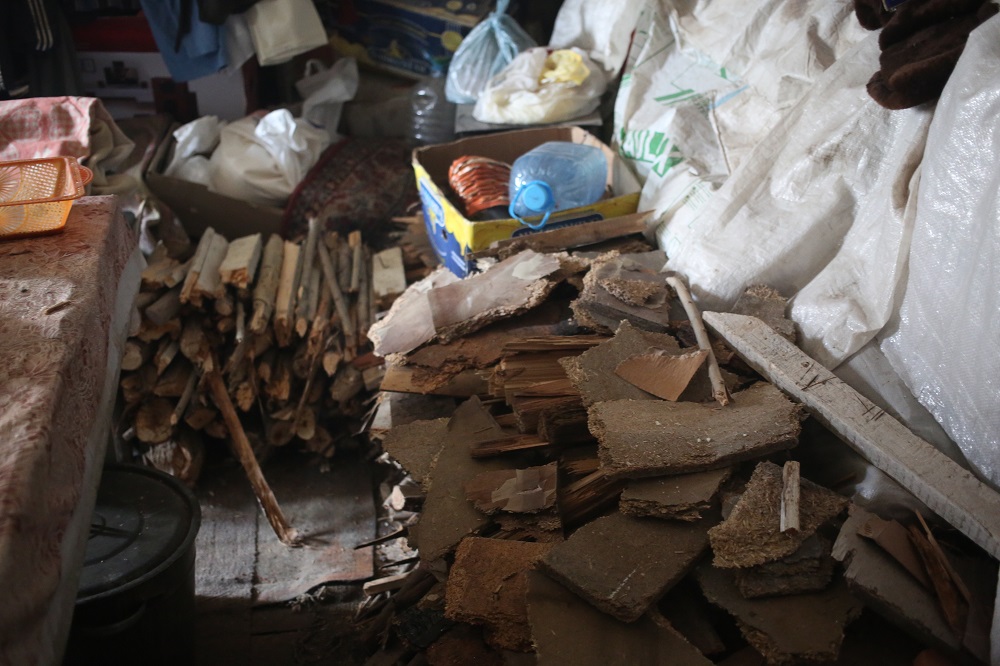
She takes us to the other two smaller rooms – a living room and a bedroom. The chimney hole in the wall is covered by a map of the world.
It’s quite cold in these rooms. Valya says it’s just as cold when they go to sleep. She’s concerned about the health of her grandchildren.
“When they remove someone from their native land, it will never be the same, wherever they go,” says a teary-eyed Valya.
Photos: Saro Baghdasaryan
 Videos
Videos Photos
Photos
Comments (1)
Write a comment